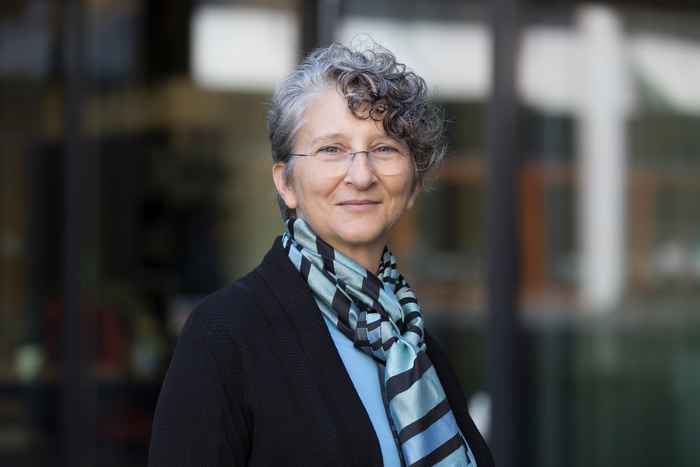Joanna Ellis-Monaghan appointed professor of Discrete Mathematics
1 October 2020

Ellis-Monaghan’s theoretical research focuses on algebraic combinatorics, especially graph polynomials such as the Tutte polynomial and its various generalisations and specialisations. Her applied research uses and develops tools from discrete mathematics, topology, knot theory and computation for problems in DNA self-assembly, statistical mechanics, computer chip design and bioinformatics. Her work explores the open spaces between disciplines, leveraging connections and ideas than can take a field in new and unexpected directions.
As an UvA professor, Ellis-Monaghan will work on a current international initiative to develop a unified theory of graph polynomials. Graph polynomials encode combinatorial and topological information about graphs, and underlying algebraic frameworks ranging from modules to Hopf algebras can reveal this information. Existing theory has encompassed many Tutte-like graph polynomials, but it is not yet understood how other families of graph polynomials fit into this framework. Ellis-Monaghan is in particular working to integrate the interlace, characteristic, transition and other non-Tutte-like polynomials into this theory.
Ellis-Monaghan will also continue ongoing work developing graph-theoretical design strategies for laboratories doing DNA self-assembly. Carefully designed synthetic DNA molecules can assemble into pre-programmed nanostructures, with applications ranging from controlled drug delivery within the body to nanoscale circuitry and self-assembling robotics. Ellis-Monaghan’s research provides provably optimal design strategies for a variety of DNA self-assembly methods. This work requires synthesis of linear algebra, geometric and topological graph theory, knot theory, algorithms, computational complexity analysis and prototype software. She will also pursue new areas of mathematical inquiry emerging from the applied problems, for example new graph invariants, edge-outer embeddability of graphs and origami knotting.
At the UvA, Ellis-Monaghan will teach courses in theoretical and applied discrete mathematics and engage with student research.
About Ellis-Monaghan
Ellis-Monaghan has an undergraduate degree in Studio Art and Mathematics from Bennington College, a Masters in Mathematics from the University of Vermont, and a PhD in Mathematics from the University of North Carolina, Chapel Hill. From 2015 to 2019, she was Chair of the Department of Mathematics and Statistics at Saint Michael's College (Vermont), where she led the establishment of a statistics programme and a new interdisciplinary data science programme. She was the Shelly Visiting Professor at Carnegie Mellon University for Fall 2019, with a Fulbright Distinguished Chair at Charles University in Prague for Spring 2020.
During 2011-2020 she was an editor-in-chief of the mathematical pedagogy journal PRIMUS, and now continues as a subject editor for undergraduate research, graduate studies, and international learning. She is recognised as a long-time proponent of active learning and has mentored roughtly 100 undergraduate research student projects. She is currently an editor of Annales de l’Institut Henri Poincare D: Combinatorics, Physics, and their Interactions, and co-author of the book Graphs on Surfaces: Twisted Duality, Polynomials, and Knots. She has been the recipient of numerous prestigious grants over the years for her research, including from NASA and the National Science Foundation.